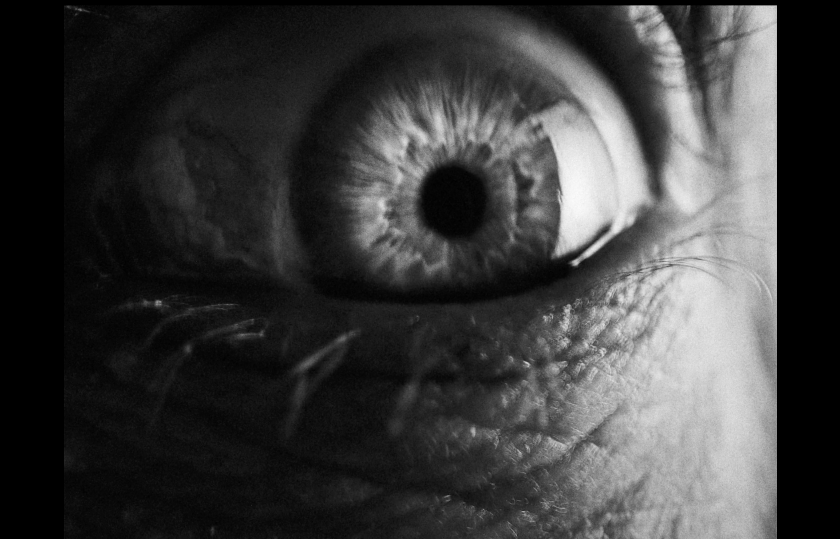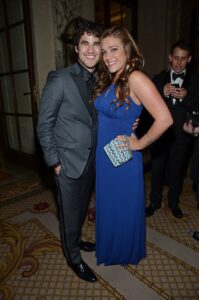Director Benjamin Nicolas captures conflict through a child’s eyes in new short film


Using shattered glass as both metaphor and medium, Broken Dreams offers a striking meditation on innocence, conflict and the quiet persistence of hope.
There’s no shortage of footage documenting the impact of global conflict, but very few films manage to convey the emotional weight of war with the subtlety, sensitivity and visual finesse of Broken Dreams, the latest project from director Benjamin Nicolas.
The short film tells the story of Imane, a 10-year-old girl living in the Kamed refugee camp in West Bekaa, Lebanon. She is both the narrator and co-creator of the film, having written and voiced the poetic script that anchors the narrative. The result is a rare, unfiltered glimpse into the lived reality of a child caught in crisis, told in her own words, through her own lens.
“I was overwhelmed by the images coming out of conflicts across the world,” says Benjamin, referencing recent humanitarian emergencies in Ukraine, Gaza, Syria, South Sudan and Afghanistan. “That helplessness turned into a need to act. I wanted to create something that didn’t just document pain, but transformed it into a form of resistance, into beauty, into hope.”
The emotional spark behind Broken Dreams quickly evolved into a powerful creative concept. Working closely with artist Olivier Monfet and NGO founder Diane Antakli of Les Baroudeurs de l’Espoir, Nicolas began piecing together a story that could translate trauma into something transcendent.
At the core of the film is an arresting visual metaphor: shattered glass. Monfet’s experimental artworks, made from broken panes, appear throughout the film, serving as a tactile, symbolic response to the theme of fragility. In one piece, Monfet recreates a photograph by Palestinian photojournalist Motaz Azaiza depicting two children in Gaza. The glass is cracked and fragmented but still reveals the children’s faces beneath.
“Glass is fragile, sharp, dangerous but also beautiful when transformed,” Benjamin explains. “Watching [Olivier] break and reconstruct the image became a visual echo of what we were trying to express: the violence inflicted on innocence and the possibility of resilience.”



The film’s proceeds support Baroudeurs de l’Espoir, an NGO dedicated to providing direct aid to displaced children. Monfet’s art piece, featured in the film, will be auctioned to raise funds – an extension of the film’s purpose beyond the screen.
While Broken Dreams is rooted in visual metaphor, its emotional weight lies in its narrator. Imane’s calm but unwavering voice cuts through the noise with a truth that only lived experience can offer. Benjamin knew from the start that his role was not to speak for her but to create space for her voice to be heard.
“There was no pressure to perform, just space for her to be herself,” he says. “Her narration isn’t scripted; it’s lived. That authenticity is the heartbeat of the film.”
In addition to Imane’s voice, the film features a symbolic presence: Nicolas’s own six-year-old daughter, Zoë, who appears as a kind of stand-in for universal childhood. “Her presence in the film isn’t literal – it’s a symbolic expression of childhood, of what’s at stake,” he explains. “Personally, it reminded me why this story matters. Why I needed to tell it.”
The film is carried by a haunting score from acclaimed composer Nils Frahm. Benjamin, working alongside editor Carla Luffe, aimed to create a soundscape that held space rather than overwhelmed the story.
“His work brings a subtle depth and emotional honesty that perfectly matches the essence of the film,” he says. “We aimed for emotional clarity, not manipulation. The sound, the images, the voice – they needed to sit in harmony.”
Created in collaboration with brand studio and production company Sibling Rivalry, the film is the latest in a growing body of work by Benjamin that explores human vulnerability with poetic restraint. His earlier documentary, A Quiet Storm, is currently gaining attention on the festival circuit, and his commercial work has long been praised for its emotional intelligence.
“From his Children’s Hospital spot to his latest documentary film, Benjamin does justice to every story he tells,” says Darren Foldes, partner and head of films at Sibling Rivalry. “He finds the most resonant version of the story and tells it with empathy and grace.”
For Benjamin, Broken Dreams represents a turning point – not just as a creative project but as a statement of intent.
“I strive to make every project meaningful, but Broken Dreams carries a weight that feels different,” he says. “With the current global crisis, this film isn’t just a story, it’s a response.”
It’s a response that refuses to reduce trauma to spectacle. Instead, Broken Dreams invites viewers to look, feel, and, crucially, listen. It asks us to make space for voices like Imane’s and to remember that beyond borders and politics, childhood is a shared language.
“I hope it cracks something open in the viewer,” says Benjamin. “That it bypasses ideology and reaches the human part of us. The part that recognises the voice of a child and understands, this is not about them—this is about all of us.”


